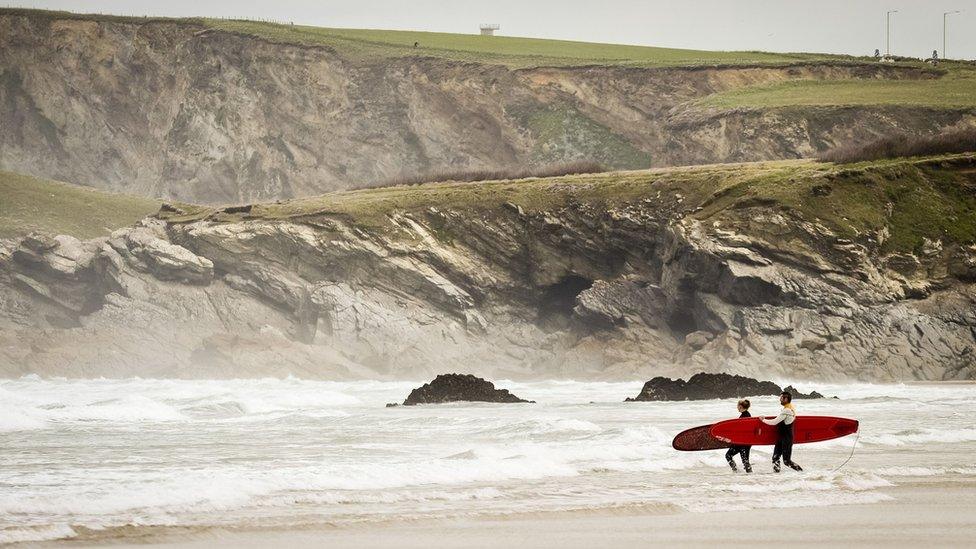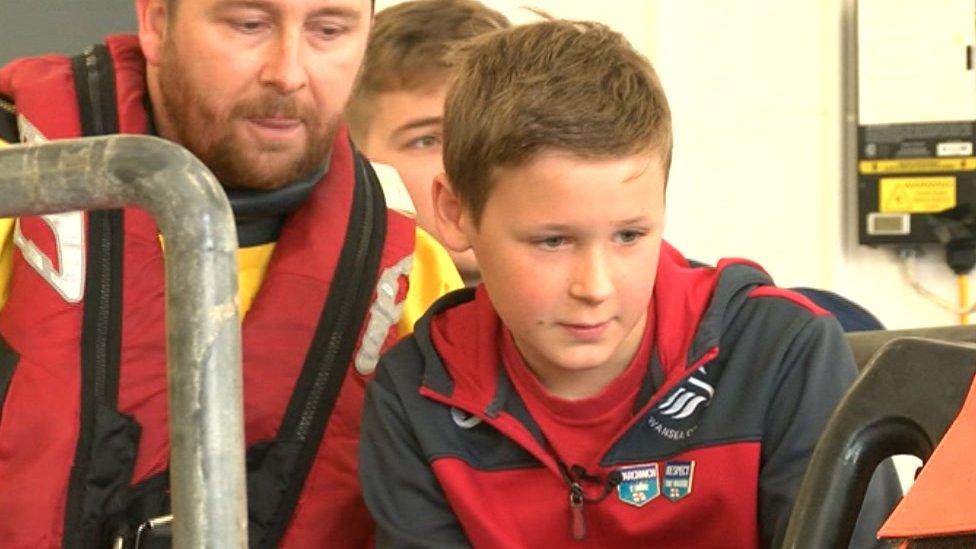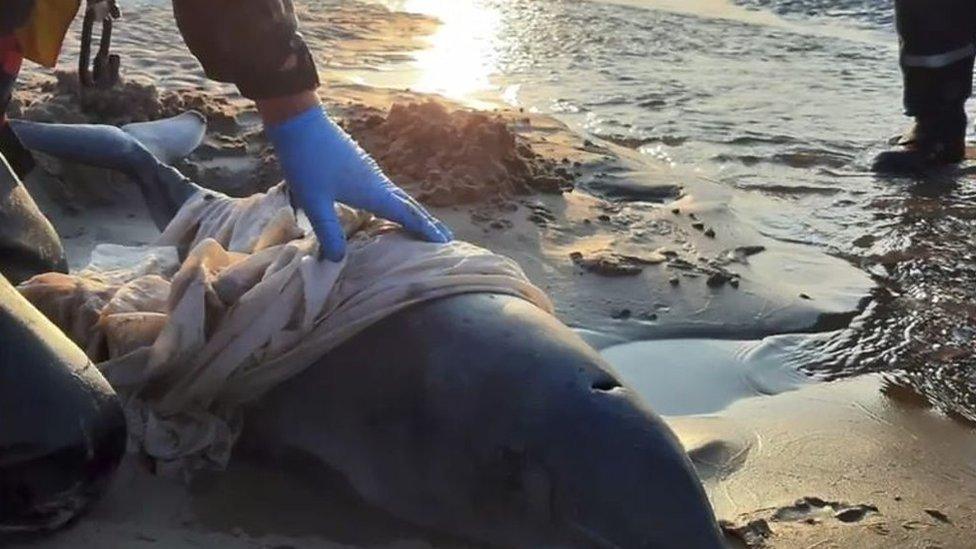Slips cause majority of coast water deaths, RNLI warns
- Published
Cornwall surfer says RNLI technique saved her life
More than half of coastal deaths in the UK last year were caused by people tripping and falling into the sea, the RNLI has warned.
Figures show 128 people died in the UK's coastal waters in 2018 - 115 of them men - with the majority falling in while out running or walking.
About 55% of those were people who "ended up in the water unexpectedly", an RNLI spokesman said.
The lifeboat charity has issued advice on what to do if you fall into the sea.
Walking and running accounted for 43 deaths, while swimming caused 15 and scuba diving 13.
The South West and Channel Islands had the highest number of deaths in England with 26, while Scotland had 34 and Wales had 18.
The figures are slightly up from 2017, when there were 109 deaths, which could be linked to the hottest summer on record which saw a surge in coastal visitors and increase in the participation of watersports, the spokesman said.

About 55% of those who died ended up in the water unexpectedly
RNLI crewman Steve Instance said: "Many of the tragic deaths at the coast can be avoided if people understand the risks and prepare themselves.
"Many of them did not plan on entering the water, with slips, trips and falls catching them unaware while out running or walking.
"Knowing what to do if you fall into cold water can be the difference between life and death."

What to do if you fall in the water
The RNLI advises anyone who unexpectedly falls into the water to do the following, external:
Fight the instinct to kick and thrash, which could cause the inhalation of water and drowning
Relax and lean back extending legs and arms
If needed, gently move arms and legs to help float
Float until breathing is under control
Only then call for help or swim for safety

Ruth Osborne, a surfer from Newquay, said floating saved her life after getting into trouble when her board's leash snapped while she was surfing at Perranporth.
She said: "Wave after wave came, you get tumbled up like a washing machine.
"I thought 'that's it, that's me gone'."
128people died around the UK coast in 2018
19more fatalities than in 2017
115of those who died were male
55%ended up in the water "unexpectedly"
She added: "I just trusted that laying back would allow me to keep my head out of the water.
"I was able to conserve my energy and catch my breath and was eventually pushed back to shore."

Nathan Slack said the float technique saved his life
Nathan Slack, from Cambridgeshire, also used the float approach when he was caught out by a strong current during a trip to Dorset.
He said: "I tried to swim and paddle back to shore but nothing was happening. I started to panic.
"The (float) advice saved my life."

- Published30 May 2019

- Published29 May 2019

- Published10 April 2019

- Published14 January 2019
